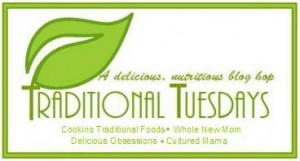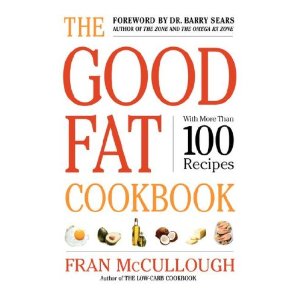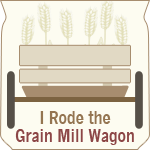- wanting to purchase some viagra
- online apotheke viagra
- viagra dosage
- viagra florida online pharmacy
- viagra type medications
- sales online viagra

Don’t miss a single exciting post in my Women’s Wellness Series! We’re talking about all aspects of women’s health, plus I’ve got a great giveaway and some guest posts lined up for you! Follow my Women’s Wellness board on Pinterest for even more great articles and product recommendations.
I just finished reading a fascinating book called “The Good Fat Cookbook“. It’s not what you might think, especially if you subscribe to contemporary thought that designates polyunsaturated fats as good and saturated fats as evil incarnate. The back of the book will give you a clue, though, as it lists the Good and Bad fats under consideration. On the list of good fats: butter, coconut, red meat, eggs, bacon, milk, and ice cream. Surprised? How about the bad fats? Canola oil, reduced-fat anything, soy, vegetable oil, and more. Doubly surprised?
If you were even mildly surprised by that good and bad listing, you should read this book! Before diving into some delicious and awesome healthy-fat-filled recipes, author Fran McCullough takes you through the history and science regarding all the various kinds of dietary fats, and explains all the ramifications they have on our health. And even though I’ve been a full-fat enthusiast for years, I learned a lot in this book, so I can recommend it for seasoned whole foodies, too.
Here are some quotes from the book:
In 1875, Americans ate 30 pounds of butter per year. … In 2002, Americans have dropped their fat consumption by 17 percent since 1977. The obesity rate has increased by 25%. Americans now eat 5 lbs of butter, 11-12 lbs of margarine, per person a year. Since 1952, trans fat consumption has risen 2500%. We still eat the same amount of food we ate in 1900, but we eat 127% more sweeteners….
According to Dr. Ron Rosedale of the Colorado Center for Metabolic Medicine, fat is the body’s preferred fuel, not sugar (in all carbohydrates). He points out that when the body stores excess sugar, it’s stored as fat, in a good usable form. Fats not only don’t make you fat (unless you eat them to huge excess - and even then, only if you also ingest enough sugars and starches to stimulate your fat-storage system), they’re good weapons against obesity.
We know… that by and large the food we’re eating in the early twenty-first century is not making us flourish. There are exceptions, of course: the Japanese and French, who happen to be the most and the second most healthy people in the world. Both these groups eat quite a different menu from the standard American one, and both their diets are full of good fats (fatty fish and eggs for the Japanese, butter, cheese, duck fat, olive oil, and an occasional treat of foie gras for the French). Right behind these two exemplary groups of healthy populations are the Mediterraneans, whose famous diet, rich in monounsaturated fats such as olive oil, is especially tasty. … It seems that every geographical area supplies essential fats for its population in a natural, accessible form. Among the Greenland Eskimos, traditionally there were no reliable supplies of vegetables and fruits, but fatty fish and seaweed provided them a completely healthy diet, perhaps the healthiest of all. In the Pacific islands, there’s fish and coconut - that miraculous substance. In Mexico, there are avocados and fish and lard. In Russia, caviar is a traditional miracle cure, prescribed for pregnant and nursing women and anyone whose health needs a boost. Even in the Ireland of the great famine, there were fish and seaweed and wild purslane for the taking. Only in America, where we insist on having it all, do we have very little of these valuable foods, mainly because we’ve taken them out of our food supply in the misguided notion that our health will improve as a result.
The food industry and healthy food police, those talking-head health experts with their extensive media exposure, have promoted polyunsaturated fats mercilessly, which is why all of us think they’re so good for us. These fats do reduce cholesterol in the blood, but they have a disastrous downside: they increase it in the tissues, which is where it really matters. They are deposited in the vascular membranes, and because they’re unstable, cholesterol has to come and pave them over to stabilize them. That’s the way, current thinking goes, we get vascular blockage that can lead to a heart attack. but, in fact, only polyunsaturated fats oxodize cholesterol; saturated fat, from animal sources, won’t oxidize that cholesterol, which is what makes it dangerous and likely to trigger cardiovascular incidents and strokes. … And for strokes too, according to Dr. Mary Enig, polyunsaturated fats are initiators, while saturated fats are protective.
I could offer you a lot more quotes from the book, but really, you should read it yourself. Some of the topics McCullough covers:
- how the cholesterol-heart disease connection came about, and how it is faulty
- how the different types of fat work in your body
- why the government and media make recommendations that have been scientifically proven to be faulty
- good sources of good fats
- what are the best fats for your budget
- why polyunsaturated oils are so terrible for your body
- free radicals, oxidation, and antioxidants
What we have deprived ourselves of - the delicious, satisfying good fats of traditional diets all around the world - are also startlingly health-protective and offer many other desirable benefits, such as good skin, great hair, a good sex life, fertility, a vital immune system, enough vitamin E for your heart, optimum hormone production and antiaging properties. (This sounds like a headline list for a woman’s magazine! Only you won’t find these things in bottles or pills, you’ll find them in fat! ~ AS) Your hormones, which control every cell in your body, don’t work properly without adequate fat, and neither does your immune system.
- Butter
- Nuts
- Coconut
- Olive Oil
- Fish
- Avocado
- Red Meat
- Eggs
- Bacon
- Milk & Full-Fat Dairy
This post contains affiliate links.




Great read! I bought this book when it first came out.. actually I probably preordered it at Amazon waiting for it.. It is indeed a great book.
I never did fall into the low-fat trap that so many did.. but I was quite thin and ate what I liked. I like real butter, whole milk, and real foods. I never did like to eat cardboard & plastics.
The one time I did go on a low fat diet was for about 3 weeks or a month & I got the worst eye twitches that cleared up as soon as I stopped eating so many empty carbs. And no, I didnt lose any weight either.
Thanks for a great read!
I was never into low-fat, either!